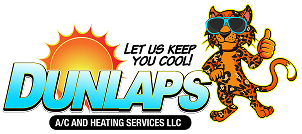Introduction
A properly functioning air conditioner should turn on, cool your space effectively, and then turn off once the desired temperature is reached. But if your system starts behaving erratically—powering on and off frequently without completing full cooling cycles—it may be experiencing what’s known as AC short cycling. This pattern is more than just an annoyance; it can lead to increased energy bills, premature wear on your system, and even total breakdowns if not addressed. Homeowners often overlook these symptoms, hoping the problem will resolve itself, but this can lead to more extensive and costly issues down the line. In this article, we’ll explore the key reasons your air conditioner may be short-cycling, how to identify the warning signs, and when it’s time to bring in a professional before small issues become major repairs.
AC Short Cycling: Signs It’s Time to Call a Pro
1. Understanding What Short Cycling Is:
Short cycling refers to the condition where your air conditioner turns on and off too frequently, failing to complete a full cooling cycle. This issue is commonly caused by thermostat malfunctions, oversized AC units, refrigerant issues, or restricted airflow. In the case of AC short cycling, your unit may run for just a few minutes before shutting down and restarting again, creating a loop that affects performance and efficiency. Not only does this increase wear and tear on the compressor, but it also prevents your home from staying consistently cool. If left unchecked, short cycling can damage your air conditioning system permanently, making early detection crucial.
2. Frequent Starts and Stops Can Overload the System:
Every time your AC starts up, it draws a significant amount of electricity. When your air conditioner keeps turning on and off too often, it places repeated stress on electrical components such as the compressor and capacitor. These parts are designed for occasional use, not constant cycling. Over time, this strain can lead to burnt-out parts, high energy consumption, and a shorter overall system lifespan. If your air conditioner seems to be constantly clicking or starting without reaching the set temperature, it’s more than an inconvenience—it’s a sign that your system is struggling to perform its basic function. Ignoring it may lead to complete AC failure, leaving you uncomfortable in the heat.
3. Thermostat Issues Are Common Culprits:
One of the simplest explanations for short cycling AC behavior is a malfunctioning thermostat. If your thermostat is reading indoor temperatures incorrectly or is placed in a poor location—like near a vent or in direct sunlight—it may tell your AC to shut off too soon. Wiring issues or dead batteries can also cause irregular signals, confusing your HVAC system into starting and stopping prematurely. While replacing or relocating a thermostat can sometimes be a DIY project, it’s wise to call a technician if you’re unsure. A professional can calibrate the thermostat accurately, ensuring your air conditioning unit receives the correct signals to operate efficiently.
4. Oversized AC Units Lead to Inefficiency:
Bigger is not always better when it comes to air conditioning systems. An oversized AC unit will cool the room so quickly that it shuts off almost immediately—only to restart soon after because the humidity level is still high or the temperature rapidly rebounds. This can trigger short cycling, where the system doesn’t run long enough to effectively dehumidify the space or maintain a stable climate. You may think a more powerful unit is a good investment, but in reality, it may waste energy, wear out faster, and offer uneven comfort. A qualified HVAC technician can assess your home’s cooling load and determine whether your system is appropriately sized.
5. Low Refrigerant Levels Can Trigger Short Cycling:
Another common cause of short cycling is low refrigerant levels, usually due to a leak somewhere in the system. Refrigerant is the lifeblood of your air conditioner—it absorbs and transfers heat during the cooling cycle. When there isn’t enough refrigerant, the system struggles to function and may overheat, causing the unit to shut down prematurely to prevent damage. As the pressure stabilizes, the system may attempt to start again, creating a continuous on-off cycle. In this situation, it’s not enough to simply recharge the refrigerant. A professional must locate and repair the leak before adding new refrigerant, ensuring your AC operates safely and efficiently.
6. Clogged Air Filters or Blocked Vents Can Disrupt Airflow:
Restricted airflow is a major factor that can contribute to short cycling. When air filters become clogged with dust, debris, or pet hair, they obstruct the normal flow of air through your system. This can cause the evaporator coil to freeze or the system to overheat, both of which will cause the unit to shut off unexpectedly. Similarly, blocked vents or closed registers disrupt circulation, which may confuse your thermostat and cause erratic cycling. Regular maintenance, including changing filters every 1–3 months and checking vents for obstructions, can prevent these issues. However, if the problem persists despite your efforts, it’s time to call a pro for a thorough system inspection.
7. Electrical Issues May Require Immediate Professional Help:
Short cycling can sometimes stem from more serious electrical problems within the AC system, such as faulty relays, damaged capacitors, or malfunctioning circuit boards. These components control the timing and operation of your air conditioner. When they fail, they may send irregular signals that start and stop the compressor unpredictably. If you notice burning smells, tripped breakers, or your unit short-cycling immediately after powering on, this could indicate an urgent electrical fault. In such cases, you should contact an HVAC technician immediately to avoid a potential fire hazard or costly damage. This may even warrant an emergency AC repair, especially during extreme weather conditions.
8. When Short Cycling Becomes a Pattern, Call a Professional:
If you’ve ruled out obvious issues like dirty filters or dead batteries and your air conditioner keeps turning on and off, don’t ignore the problem. Repeated short cycling is more than a minor annoyance—it’s often a symptom of underlying mechanical or electrical issues that require expert attention. An HVAC technician has the diagnostic tools and experience to determine whether it’s a sizing error, refrigerant leak, wiring issue, or failing part. Waiting too long can make minor problems worse, leading to more expensive repairs or full system replacement. Acting promptly can preserve the life of your system and restore reliable cooling performance to your home.
Short cycling is a warning sign that your air conditioner is not running efficiently or safely. Whether it’s due to a faulty thermostat, low refrigerant, blocked airflow, or a more serious electrical issue, ignoring the problem can shorten your system’s life and inflate your energy bills. Timely intervention from a licensed HVAC professional can resolve these issues before they escalate, ensuring your home stays cool and comfortable. Don’t let HVAC short cycling affect your summer comfort—know the signs and act early to protect your investment.
Conclusion
If your AC is short-cycling and nothing seems to fix it, call our expert HVAC team at Dunlap Heating and A/C at 813-323-2899 for a fast and reliable solution!


